Kaynak: www.bbc.com

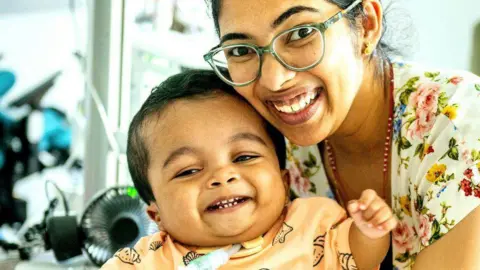 Teena Thomas
Teena ThomasSince Gabriel Sebastian was born with a rare genetic condition 17 months ago, his parents have never left his side.
His health is so precarious he has spent his entire life in the Edinburgh hospital where he was born.
And his mum and dad, Teena Thomas and Sebastian Paul, have not spent a single night in their own home since then.
The couple, who are originally from Kerala, India where a father’s first name is used as a surname, now have their own room in the hospital.
They are preparing to spend their second Christmas there.

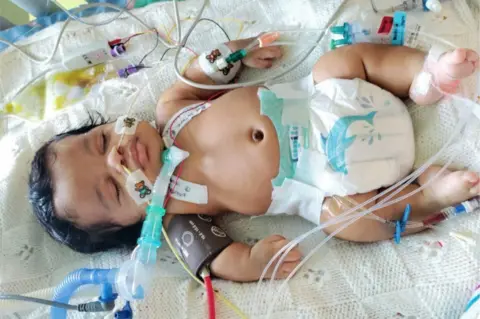 Teena Thomas
Teena ThomasTheir first indication of Gabriel’s health problems came when Teena had a scan when she was five months pregnant.
The image of her baby boy flickered on the screen and everyone stopped talking – something was wrong.
The couple were told his bones “weren’t really there”, his spine was barely developed, his arms and legs were too short and it was unlikely he would survive.
They were asked to think about terminating the pregnancy.
Teena told BBC Scotland News they were terrified.
“Sleep became impossible,” she said. “How do you even begin to make that kind of decision?
“Lying awake, I could feel him moving so strongly, like he was saying, ‘I want to come into the world, Mama.’
“How could we not fight for him?”

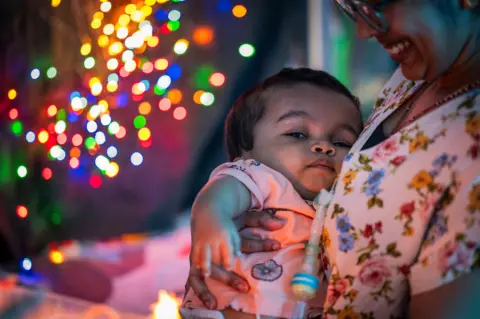 Chris Watt Photography
Chris Watt PhotographyTests revealed their baby had Spondyloepimetaphyseal dysplasia – a genetic condition so rare that no one could predict how it would shape his life.
He would be short, could have facial abnormalities, maybe brittle bones and there was a 50% chance that he would be stillborn.
“We prepared for the worst but clung to hope,” Teena, 32, said.
“One scan showed him sucking his thumb. Surely that meant his bones had some strength? We dared to believe.”
They bought a Moses basket, decorated his room and thought they would be in hospital for just five days.
Gabriel was born by cesarean section on 2 June 2023 and has been in the Royal Hospital for Children and Young People in Edinburgh ever since.
“They didn’t put him on my chest, didn’t even wait to clean him. I got to touch his tiny finger – then they scooped him up and ran,” Teena said.
He was taken to intensive care and immediately intubated.
They were given a room in the hospital’s parents’ accommodation run by Ronald McDonald House Charities.
It is one of 25 rooms on the top floor of the children’s hospital where families can stay free of charge, for as long as they need.
“This was 17 months ago. We’ve been here ever since,” Teena said.

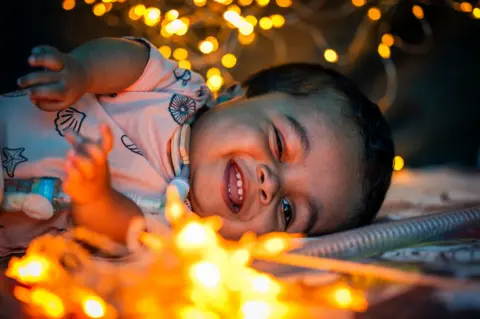 Chris Watt Photography
Chris Watt PhotographyGabriel endured endless tests, X-rays and scans. His chest was too small, his ribs underdeveloped and he was unable to breathe unaided.
At two months old, he had his first major surgery, a tracheostomy – a hole in his windpipe to give him an alternative airway for breathing.
But it came with new fears. Now, if he moved too much, the tube could block, cutting off his airway.
“The first time this happened was horrifying,” Teena said.
“One minute he was fine, the next his heart rate plummeted, he turned blue and went cold in my arms.”
For months, emergencies like these were happening every other day and the couple asked doctors if they would ever be able to save their child. They couldn’t give them an answer.
“I’ve never heard his voice because you need air to pass through the voice box but the hole in his neck for the ventilator is below that,” Teena said.
“It makes me cry when I see him crying silently.”

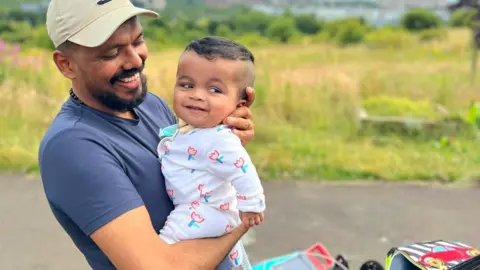 Teena Thomas
Teena ThomasIn the meantime, Teena has returned to work as a scientist while Sebastian has continued his career as an engineer.
They have arranged their working hours so one of them is always with Gabriel.
Through it all, there are fragile moments of joy.
The day after his first birthday, after 366 days of living in the children’s hospital, their boy finally felt sunlight on his face.
He had begun to tolerate his portable vent and could go outside.
Teena said: “Gabriel’s smile is the most powerful thing.
“Through every invasive operation, every painful procedure, every heart-wrenching emergency, he comes back smiling. And that keeps us going.
“That, and the extraordinary, superhuman NHS teams at the hospital.”

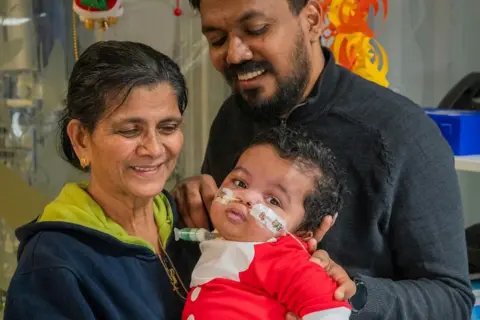 Teena Thomas
Teena ThomasThe Roman Catholic couple have been told that Gabriel won’t be able to go home for Christmas.
Instead the family have been asked to switch on the Christmas lights at the hospital at the end of the month.
Pippa Johnston, deputy CEO at Edinburgh Children’s Hospital Charity, said: “Gabriel and his family are inspirational and have shown so much strength and resilience through an unimaginably difficult time.
“While many people will head home to be with family this Christmas, the sad reality is that many children like Gabriel, and their families, will spend it in hospital instead.
“Together with the NHS, we work hard to bring the sparkle to make sure families like Gabriel’s don’t miss out over the festive season.”

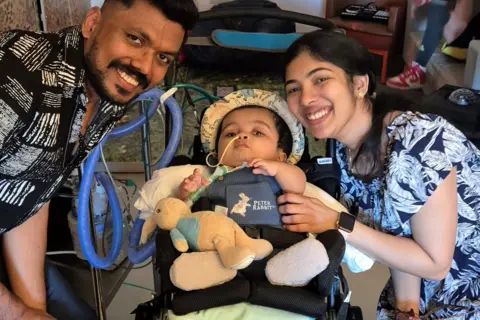 Teena Thomas
Teena ThomasGabriel’s future is uncertain. Doctors don’t know if he will ever breathe on his own, speak or eat. Recently they discovered his brain is shrinking.
Last Christmas, he was too unwell for it to be anything other than “another scary day”.
Teena said this year Edinburgh Children’s Hospital Charity was pulling out all the stops to make it one for him to remember.

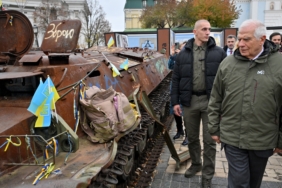
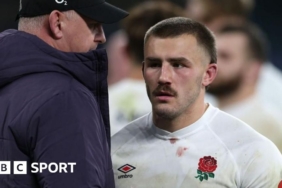
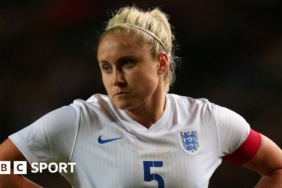
Yorumlar kapalı.